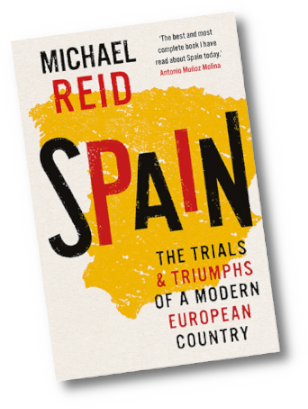
Post-election Spain: moderate majority, extremist parliamentary leverage

Not for nothing is Pedro Sánchez the great survivor of Spanish politics. When on the morning of May 29th he called a general election four months earlier than expected it smacked of desperation.
The previous day the left had been hammered in local elections, his Socialist party losing control of six of the regional governments it was defending. The triumphant centre-right People’s Party (PP) looked poised to sweep to power nationally.
Yet in the snap election on July 23rd although the PP became the largest political force, with 136 of the 350 seats (up from 89) in the Congress of Deputies, it has no obvious route to a parliamentary majority. The Socialists gained two seats and garnered only 350,000 fewer votes than the PP. As Ignacio Varela, a columnist who was political adviser to Felipe González, a previous Socialist prime minister, has put it, Sánchez was the arithmetical loser of the election but its political winner.
That doesn’t guarantee that he can continue in office. Spain is now embroiled in the complicated parliamentary arithmetic of coalition politics. In what was previously a two-party system, political fragmentation means that since 2015 no government has enjoyed a parliamentary majority.
The parliament is divided into two warring blocks. One involves the PP and Vox, a hard-right force. The other comprises the Socialists and their further-left coalition partner, now called Sumar, with the support of peripheral nationalist parties.
After two inconclusive elections in 2019, Sánchez formed Spain’s first coalition government since the 1930s with Podemos, Sumar’s predecessor. He had to rely on the parliamentary support of, among others, Esquerra, a Catalan nationalist party involved in the unconstitutional independence referendum in Catalonia in 2017, and Bildu, the successor to ETA, the Basque terrorist group. Sánchez’s predecessor as Socialist leader, Alfredo Pérez Rubalcaba, had scorned such an alliance as a “Frankenstein government”.
For three years it worked fairly well. Sánchez steered Spain through the pandemic and, with EU aid, to economic recovery. He kept his extremist allies in check, raised the minimum wage and strengthened the welfare state. He took the sting out of the Catalan conflict by pardoning the jailed separatist leaders.
But as the PP revived under a new leader, Alberto Núñez Feijóo, Sánchez veered left. He waved through several controversial laws (some badly drafted) inspired by Podemos on sexual consent, trans rights and animal rights, as well as a divisive law on “democratic memory” and, at Esquerra’s request, botched changes to the penal code to attempt to forestall further legal cases against Catalan separatists. And he allowed Bildu to claim credit for a housing law. All of this alienated moderate voters and saw the collapse of the vote for the squabbling far-left in the regional elections.
Sánchez’s snap election threw the PP off balance. He calculated rightly that the PP would be distracted by difficult negotiations with Vox to form regional governments. And Núñez Feijóo made mistakes, especially in refusing to appear in a second TV debate, having won the first one.
Above all Sánchez succeeded in turning the election into a rejection of Vox, which lost 19 of its 52 seats and a fifth of its vote. Most Spaniards do not share its culture wars, its denial of climate change and its hostility to immigrants. Fear of Vox hobbles the PP’s chances of gaining other allies.
The bigger picture for Spain’s political future is mixed. After 25 successful years triggered by the transition to democracy after the end of Francisco Franco’s long dictatorship, the country has suffered difficulties since the financial crisis of 2008-12, which hit it particularly hard.
As I argue in my recent book (use code Y2352 on the Yale University Press website for a special discount offer*), those difficulties—anger over corruption and austerity fuelling several varieties of populism, as well as political fragmentation and polarisation—are not because of any defect of origin in Spanish democracy, but rather are largely those of advanced democracies everywhere.
With support falling not just for Vox but also for the far-left and the Catalan separatist parties, the election saw a partial revival of the two main parties: their combined vote share fell from 84% in 2008 to 49% in November 2019 but has risen again to 65%.
Spain has an underlying moderate majority. Some of those moderates would like to see the two main parties strike some basic agreements. But perhaps the most lasting legacy of the Spanish Civil War is that the left-right divide is harder to bridge than in many other western European countries.
This means that in the parliamentary arena extremist parties retain leverage. To form a government now Sánchez would need not just all of his current allies but also at least the abstention of Junts (Together), the party of Carles Puigdemont, the fugitive former Catalan president who organised the 2017 referendum.
That may prove difficult, even for Sánchez: Junts and Esquerra want an independence referendum and an amnesty, demands which the prime minister cannot accept. They may yet soften their demands. But Sánchez might also reckon that governing in such a fragile position would be all but impossible. As in 2015-16 and in 2019, Spaniards may once again face a repeat election.
Michael Reid
Michael is former Madrid correspondent for The Economist. His new book, Spain: The Trials and Triumphs of a Modern European Country (Yale, March 2023), offers an incisive account of modern Spain, from the death of Franco to the Catalan referendum and beyond.

Visit Yale University Press' website and use code Y2352 on the Yale University Press website for a special discount offer*!
This blog post was edited by Freddy Nevison-Andrews.
*Offer available for customers in the UK, subject to availability. Offer ends 31/08/23.

